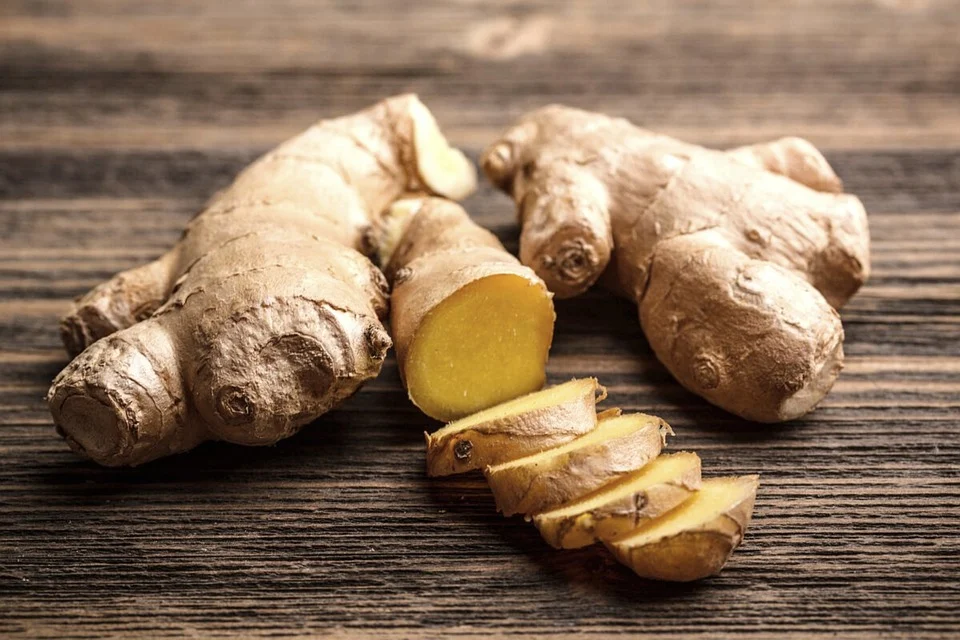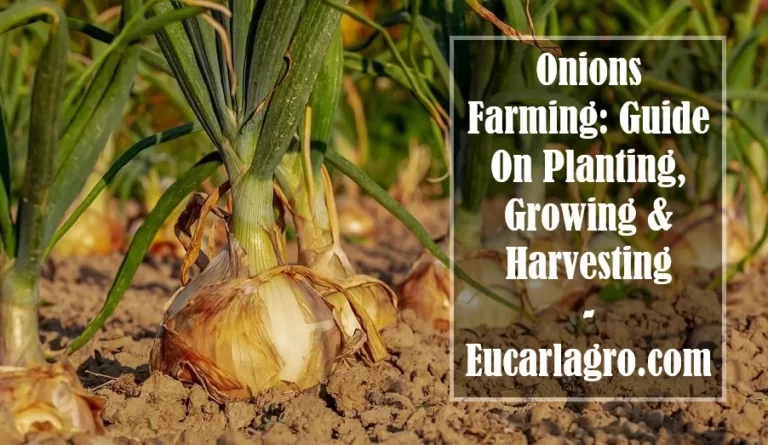How to Start Ginger Farming Business in Nigeria
Are you looking for a lucrative farming business to start in Nigeria today? Are you looking for the full guide on How to Start Ginger Farming Business in Nigeria? if yes, then read on. Due to the high demand for its medicinal and culinary value, ginger farming just like other agricultural businesses is very profitable.
Ginger: An Overview
Ginger (Zingiber officinale) is a root crop (rhizome), consisting of numerous short finger-like structures or branches born horizontally near the surface of the soil. This root crop is native to the eastern region of South Asia but widespread and sourced all around the world basically because of its medicinal, aromatic, and most importantly culinary characteristics and edibility.
In Nigeria, Ginger is produced in several parts of Nigeria but has the highest production in the northern regions of the country such as Kaduna (southern part of Kaduna), Niger, Benue, and Nassarawa state(Keffi and Akwanga Local Government Areas).
Types of Ginger in Nigeria
There are two major varieties of ginger commercially cultivated, They are:
The Yellow Ginger
This variety of ginger is locally called “Tafin Giwa” by the Hausas. This variety can be differentiated by its bold yellow rhizomes.
The Black Ginger Variety
This variety of ginger is locally called “Yatsun Biri” and is differentiated by its dull-grey color rhizomes.
The yellow variety is more popular than the black variety due to its high yielding capacity and characteristic pungency.

How Profitable is Ginger Farming Business in Nigeria
Ginger farming just like other agricultural businesses in Nigeria is very profitable. Due to the high demand for its medicinal and culinary value, ginger farming remains a lucrative business for any interested in the spice farming business in Nigeria.
Also, aside from its aroma and high appreciation by chefs for its spicy hot taste and flavors in dishes, ginger is used industrially in alcohol and cosmetics production thereby making it a cash crop of high export value.
Research reveals that 500 bags of ginger can be produced by planting less than 100 bags. Doing some estimation, it will cost about 1M to cultivate a hectare of land, if the yield is maximized, a minimum of 400-500 bags of ginger gotten. Currently, the price of a 50kg bag of ginger costs N15,000 per bag. That’s above N6M to N7.5M, that’s more than profitable.
How to Start Ginger Farming Business in Nigeria
Choice of Land
This is the first step in starting a ginger farming business in Nigeria. However, As we’ve pointed out above ginger can be cultivated on any available land in Nigeria except for stony lands, waterlogged or marshy land.
So your choice of land for the Ginger Farming Business in Nigeria for best practices must not be a stony, marshy, or waterlogged area. This is because as a tuber crop, stony land won’t allow ginger to grow big tubers while marshy or waterlogged lands will make the ginger tubers to get decay.
Land Preparation
Just like other tuber crop farming businesses, land preparation is a must. However, unlike other crops, lands for ginger farming are not made into mounds or ridges but on flatbeds, as it has long been discovered that gingers cultivated in mounds yield less both in quality(spices and flavor) and quantity.
Land for a ginger farm is tilled and leveled into flatbeds. Land preparation can either be done manually or with the aid of machines. This preparation is usually done in April following rain or in some cases early in March when the soil is moist or soft. Irrespective of the farm size, field preparation operation is highly labor-intensive. Flatbeds for ginger farming are prepared 15cm above the ground and a meter in width.
Seed Selection
Like most rhizomes, which Ginger is part is propagated through planting its buds. Thus, the selection of ginger seed is guided by the size and fatness of the ginger tuber.
Certain properties are considered while selecting ginger seed for planting such as; a number of budding tendencies (minimum of 5 and above is recommended), non-physical damage of the ginger tuber, and Irrespective of the variety, wide and fat ginger tubers are usually selected for seed.
Planting
Ginger planting is usually carried out in the month of April to early May. Planting operation can be done manually after tillage and leveling of beds and the soil moisture condition has been considered satisfactory.
The planting operation involves digging small holes on the flats beds; the ginger seedling is put in the hole covered. Best planting practices stipulate a space of up to 4 to 5 inches from one hole to another side to side so as to reduce weed invasion.
Weeding
This is an important step in the Ginger Farming Business in Nigeria in other to get a bountiful harvest. According to best practices, weeding in ginger farming is required to be carried out at least thrice in the following other.
Firstly, after full germination, usually around May. The method of weeding to be applied depends majorly on the farming scale and capital available.
For large-scale ginger farming, the use of herbicide is most appropriate for this first wedding. The herbicide often used is Forceuron, it selectively kills weeds without affecting the planted gingers.
However, handpicking of weeds on the farm can also be carried out on small-scale farms. Note, irrespective of the farming scale, only handpicking method of weeding should be employed for the second and third weeding.
The need for weed extermination and its benefit outweighs the cost as weeds compete with seedlings for limited space and sunlight. Also, weeds breed pests that ultimately lead to diseases.
Organic Manure and Fertilizer Application
Its often said that the profit of any farming business is determined by the fertilizer. This is also true in the ginger farming business. Just like in the step above, fertilizer application is also to be done at least three times during the cycle of ginger production.
The first application is before cultivation, this is very important, and only organic manure should be used. The reason for this is that chemical fertilizers are usually too harsh for the young ginger plants if used.
Subsequently, Chemical fertilizers such as NPK or Urea can be applied, and they are applied usually after the second and third weeding around May to June and around August and September respectively. The second and third application of fertilizers is to enable the ginger plant to yield more big tubers with better pepper spices.
Irrigation
This is mainly dependent on the region and on the season. Ginger farms do well during the rainy season but during the dry season, Irrigation is very important for better yielding.
Pest and Disease Control
A common pest of ginger is the shoot borer but can be controlled manually and by the use of pesticides
Also, its common disease is Rhizome rot disease but can be prevented through the use of healthy seeds, destroying affected crops, and avoiding waterlogged areas.
Harvest
The Production cycle of Ginger farming is usually 7-9 months after planting, usually around November to December, when the leaf of the ginger plant turns yellowish-brown signifying that it is ready for harvest.
In Nigeria, Harvest is still done manually by hand with crude farm tools. The Ginger tuber is dug up using a hoe by workers and is collected in baskets.
Conclusion
Through the article, we have been able to examine how profitable the Ginger Farming Business in Nigeria is and the step-by-step guide on How to Start Ginger Farming Business in Nigeria. If you have any questions, please use the comment box below.

![How To Start Pepper Farming Business in Nigeria ([year]): Complete Guide Start Pepper Farming Business](https://eucarlagro.com/wp-content/uploads/2023/11/Start-Pepper-Farming-Business-in-Nigeria.webp)

